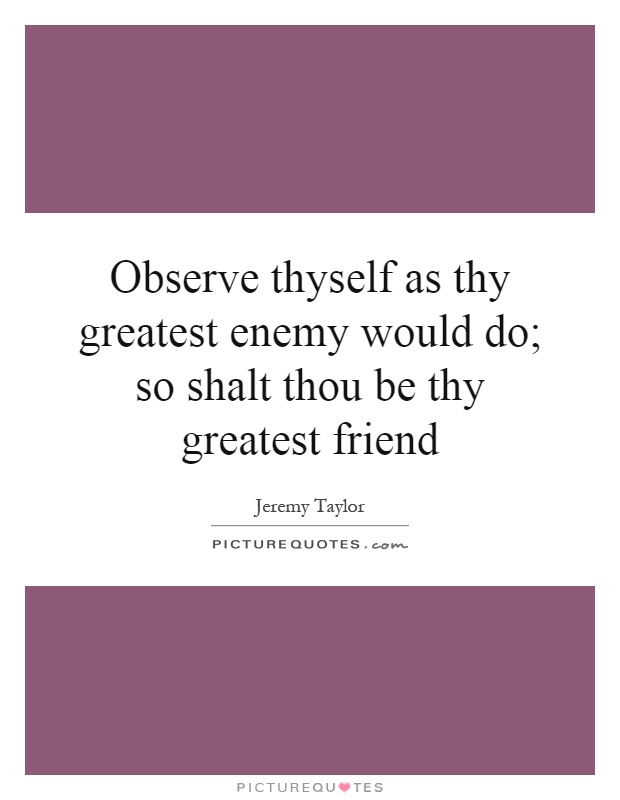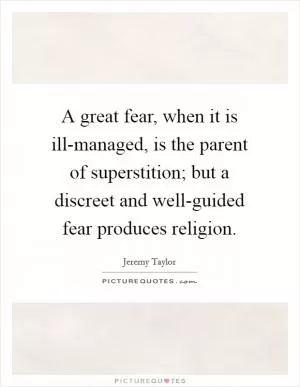Observe thyself as thy greatest enemy would do; so shalt thou be thy greatest friend

Observe thyself as thy greatest enemy would do; so shalt thou be thy greatest friend
Jeremy Taylor, a 17th-century Anglican bishop and theologian, is known for his profound insights into human nature and spirituality. One of his most famous quotes is, “Observe thyself as thy greatest enemy would do; so shalt thou be thy greatest friend.” This quote encapsulates Taylor’s belief in the importance of self-awareness and self-reflection in order to cultivate a healthy relationship with oneself.In the context of Taylor’s teachings, this quote can be interpreted as a call to examine oneself with a critical eye, as if one were their own worst enemy. By doing so, one can identify their flaws, weaknesses, and negative patterns of behavior that may be holding them back from reaching their full potential. This process of self-examination can be uncomfortable and challenging, but it is necessary in order to grow and improve as a person.
Taylor believed that by acknowledging and confronting our own shortcomings, we can begin to make positive changes in our lives and become our own greatest friend. This involves being honest with ourselves, taking responsibility for our actions, and striving to be the best version of ourselves that we can be. By treating ourselves with the same level of scrutiny and accountability that we would reserve for an enemy, we can break free from self-destructive habits and thought patterns and move towards a more fulfilling and authentic way of living.
Self-awareness is a key component of Taylor’s philosophy, as he believed that true spiritual growth and self-improvement can only come from a deep understanding of oneself. By observing ourselves as our greatest enemy would, we can gain valuable insights into our own behavior and motivations, and begin to make positive changes that will benefit not only ourselves but also those around us.












 Friendship Quotes
Friendship Quotes Love Quotes
Love Quotes Life Quotes
Life Quotes Funny Quotes
Funny Quotes Motivational Quotes
Motivational Quotes Inspirational Quotes
Inspirational Quotes